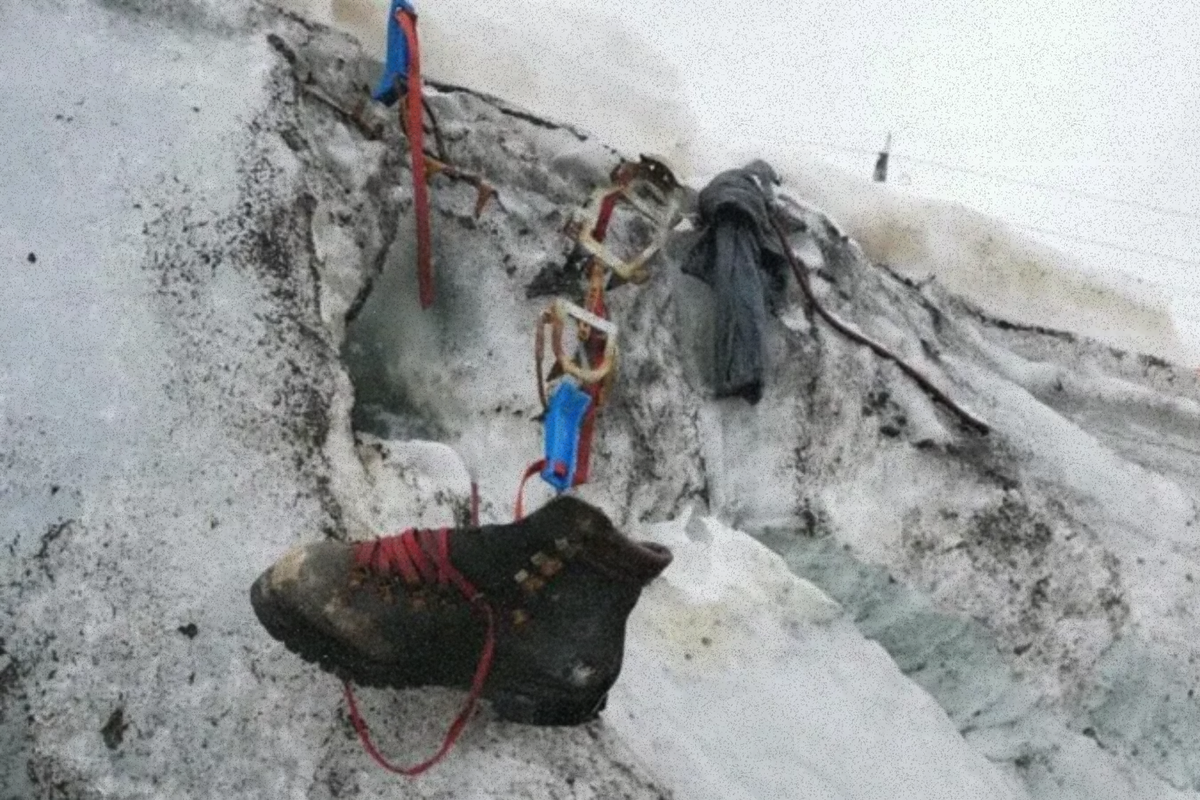German climber's remains identified 6 decades after accidental death
Melting glaciers across Alps increasingly revealing long-lost climbers' remains
AFP
News Agency Partner
AFP is a renowned international news agency, delivering comprehensive and reliable reporting on global events, trends, and issues.

An undated photograph of a boot with red laces and climbing equipment found with the remains of a hiker who perished while climbing the Theodul glacier, Switzerland.
Reuters
Local resident discovered bones 700 meters below original accident site
Climber fell into crevasse while crossing Wasserfallferner glacier in 1967, rescue attempts failed
DNA analysis confirmed remains belong to 30-year-old from Baden-Wuerttemberg region
The remains of a man discovered near an Austrian glacier have been identified as those of a German mountaineer who died almost 60 years ago, local police said on Thursday.
Climate change has accelerated the melting of glaciers, with the retreating ice releasing bodies of climbers it has held for years, often decades.
The German climber's bones, including part of a leg, were discovered last year in the Tyrol province in western Austria.
He was reported missing in March 1967 after he fell into a crevasse while crossing the Wasserfallferner glacier with a companion, local police told AFP.
Search teams were unable to retrieve him from the deep crevasse at the time and bad weather forced them to break off the rescue mission.
In August 2025, a local inhabitant found the bones about 700 meters (2,300 feet) below the glacier in the Rotmoostal valley and alerted authorities.
After carrying out extensive DNA analyses of the human remains, forensic experts could "attribute them to a 30-year-old German from the Baden-Wuerttemberg region" who has been missing since 1967, police said.
Climate change uncovering decades-old remains
"In recent years, the receding of glaciers across the Alps -- in this case the Wasserfallferner glacier -- has resulted in the discoveries of remains of sometimes long-missing mountaineers," police spokesman Erwin Voegele told AFP.
"Such finds have also happened in neighboring Switzerland and Italy but it is rare that the remains can be identified almost 60 years after the accident," Voegele added.
In 2023, the remains of a German climber who went missing in 1986 were discovered on another Swiss glacier.
Austria is set to become largely "ice free" within 45 years, the country's Alpine Club warned last year, reporting that in 2023 two glaciers shrank by more than 100 meters.










Comments
See what people are discussing